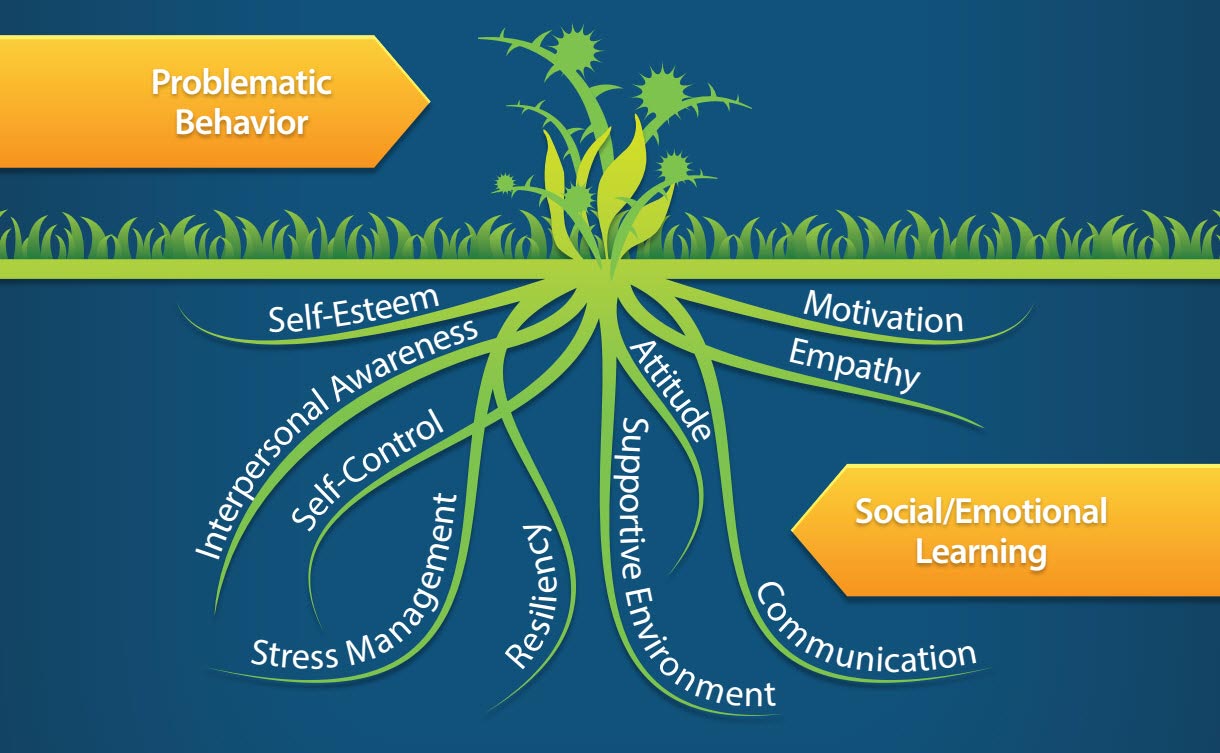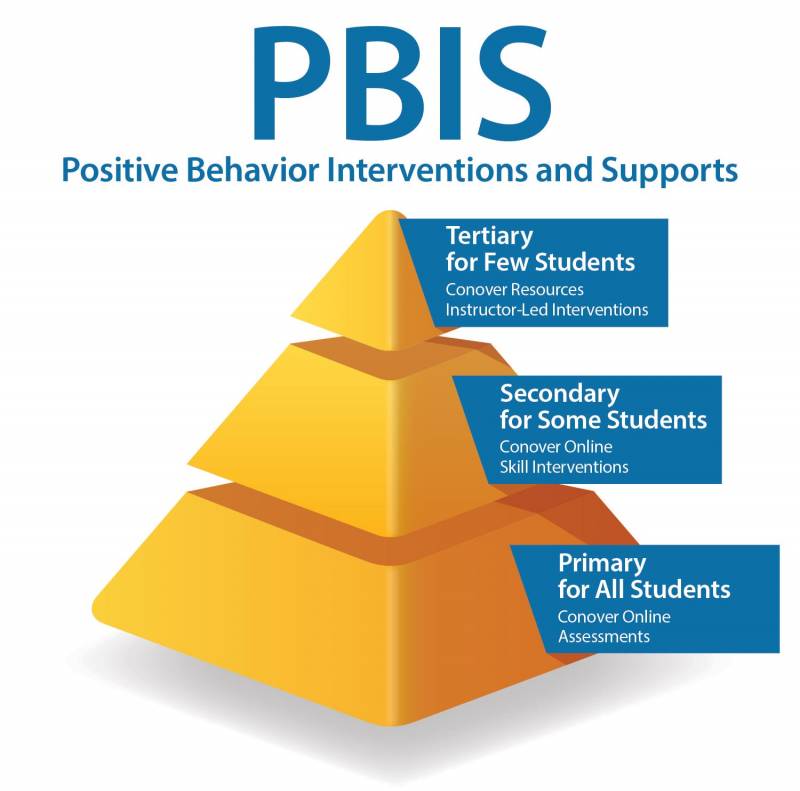A quick internet search on the definition of PBIS results in two common threads—reducing problematic behaviors and increasing academic success, with an emphasis on evidence-based research. But, ever since PBIS was first introduced in 1997 in the re-authorization of IDEA as a research-based framework for supporting children with behavioral disorders, educators have been asking themselves, “How do we accomplish this?”
By now most practitioners can agree on the three tiered approach to delivering services
- Tier 1 – Assessment for all students.
- Tier 2 – Skill interventions for some who need it as identified by the assessment.
- Tier 3 – Tertiary or more intense interventions for those who need it.
What makes Conover’s PBIS unique is the use of self-directed online assessments and skill interventions based upon assessment results, all linked to an instructor-led blended learning approach for those who need a more intense intervention process.
Conover’s PBIS process is the result of extensive research on the core social and emotional learning (SEL), or what we prefer to call emotional intelligence (EQ), competencies needed to reduce problematic behaviors and increase academic success. Our research spans over forty years and includes over 140 research reports on the use of our emotional intelligence assessments and skill interventions for personal and academic success.
Our PBIS process

Our PBIS process combines three approaches to addressing problematic behaviors. Our programs can address the common problems of anger and bullying as well as the many other issues related to problematic behaviors and academic achievement. We use a scientific approach that connects research with the fields of psychology and technology to provide the most advanced PBIS solutions available today. Each participant is given a targeted assessment on positive behavioral expectations related to social and emotional development for school success. These assessments are designed to identify the underlying causes of positive as well as negative behaviors related to personal and academic success.

Once an assessment is completed the system identifies the areas where further development is needed and automatically assigns, delivers and post-assesses the targeted EQ competency. A comprehensive data management system makes it easy to track and chart gains by individual user, by groups and by an entire district or state, making program accountability a simple reality.
If you would like to learn more about our unique, proven, PBIS process, sign up for a free webinar today!

